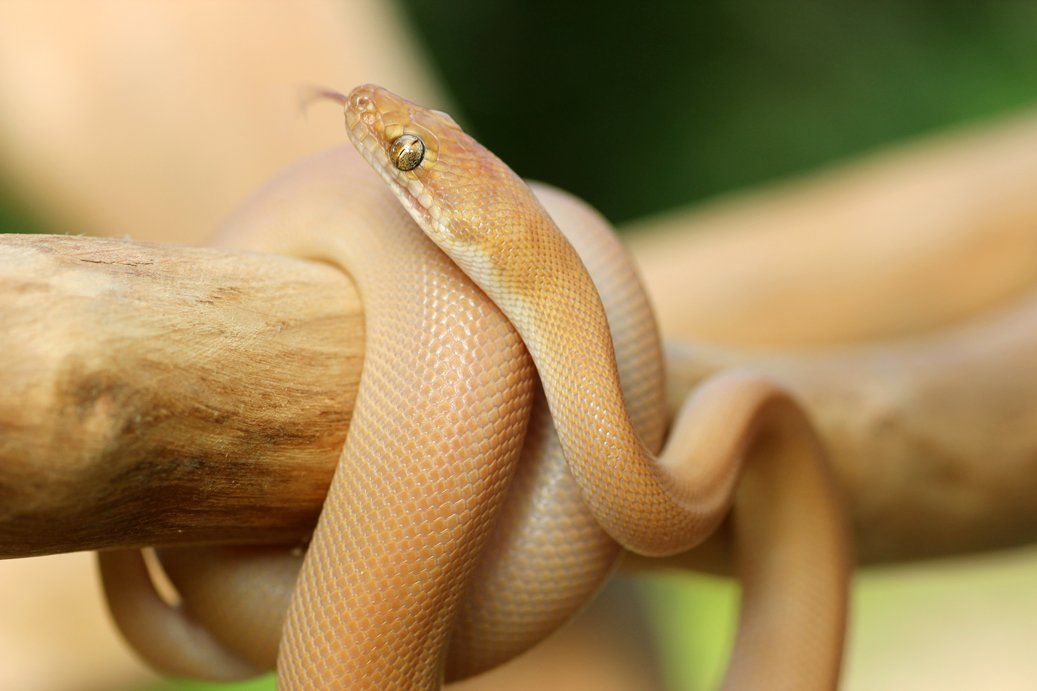The difference between poisonous and venomous is that venom is injected, whilst poison is not. Therefore, because snakes inject their ‘toxin’ into their prey or predators from their teeth, they are venomous, not poisonous.
Neurologically, it has been found that snakes can learn to tolerate handling, however, they lack the intellectual capacity to display affection.
If pythons are stressed, they generally will hide away, display defensive behaviour (hissing, forming a ‘s’ defensive pose, or striking and letting go), and will often stop eating. If they come out to explore (usually at night time) and are feeding well and they have comfortable hides, they are generally ‘happy.’
Snakes can certainly recognise scents, including their owners, however they don’t have the same intellectual capacity as other pets, like dogs or cats
Unfortunately snakes don’t know their names, as they actually don’t have ears- they sense vibrations in their environment!
Snakes don’t have the same intellectual capabilities as other pets, but they can learn to tolerate and possibly enjoy handling, especially if you’re a nice warm human on a cool day!
It can sometimes be hard to tell if a snake is looking at you, or something else in the environment, given that their eyes are fixed on the side of their heads! But if they appear to be staring at you, they are likely deciding whether you are a threat, or food!
Snakes will ‘poop,’ or defecate, via the cloaca, which is where they both ‘pee’ and ‘poo.’ One adaptation snakes have to minimise water loss is to produce urates, which is kind of like a dry form of urine, which is expelled via the cloaca as well.
Snakes may not be loyal per-se, however they may recognise the scent of their owner, and associate them with ‘safety.’
Snakes very rarely fart, as the gas is typically produced during the break down of plants and fibre, which snakes don’t have much exposure to as they are strictly carnivorous.
Because snakes lack a diaphragm, they actually can’t sneeze! If they get something irritating the nostril, they can exhale more rapidly to clear it.
Brumation is kind of like a ‘half’ hibernation- instead of completely sleeping and hiding away, pythons who brumate may periodically come out to bask, or move around, before going back to ‘sleep.’
Personally, unless I’m cooling snakes preparing them for the breeding season, I keep the heat source on 24/7, especially for hatchlings and sub-adults. Provided they are allowed access to both a cool and warm end, they will thermoregulate on their own.
We strongly recommend you do not keep more than one python in an enclosure- there is a risk that one may try to eat the other, and I have seen cases where one snake does indeed eat the other, and both end up dying. In my opinion, the risk just isn’t worth it!





